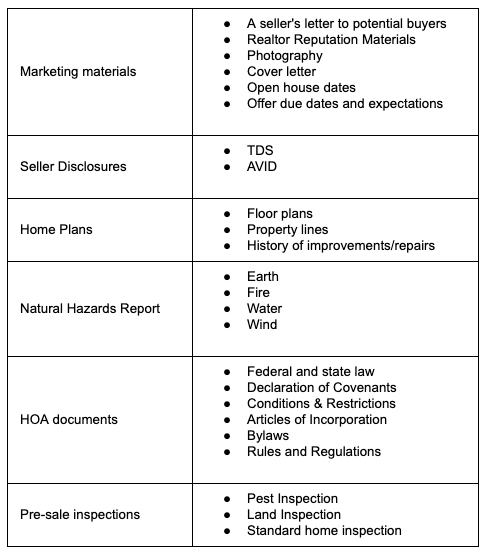The integrity of the Industry
Realtors rely on an excellent reputation to make it in this industry. This is true for (at the very least) two reasons:
Buyers and sellers depend on a compliant and honest dealmaker to help them sell or buy their home quickly, safely, and legally.
A great reputation usually secures great referrals and new business.
With this in mind, local regulations and state/federal laws have less influence on why your clients expect to be well informed. Most buyers and sellers aren’t thinking about the law; they’re thinking about the future and good fortune of their family.
Social media, public review sites, media publications, you name it; the pro-transparency movement is now a mandate in nearly every facet of our economy - it is also true for real estate.
Generational Expectations v. Caveat Emptor
If you’re not privy to the concept, Caveat Emptor translates from Latin as “buyer beware.” It is an old-school way of selling real estate. It will not help you sell more homes this year.
Though it is the buyer’s responsibility to ensure their awareness of any property defects and historical issues, this caveat is not going to be the fail-safe for your sellers in a legal battle. If it is decided that the sellers failed to make the required disclosures, your sellers will be facing thousands of dollars in out of pocket fines or settlements.
Legal ramifications aside, buyers expect transparency.
Upfront information is the single best thing that you can do to increase the quality of the offers that you receive. The reason is simple: confident buyers make better offers.
Why share Upfront. what to share. and, how to do it.
Why share upfront
The sales funnel (also known as a revenue funnel or sales process) refers to the buying process that customers are lead through when making purchasing decisions.
Another way of looking at it is: the process through which you find clients, qualify them and sell to/for them.
The typical real estate deal funnel segments into roughly seven phases.
Awareness Phase – potential clients become aware of the existence of an opportunity or need.
Interest Phase – clients demonstrate interest by conducting product research.
Evaluation Phase – clients examine alternative solutions as they inch toward a final buying decision.
Decision Phase – a final decision is reached, and potential negotiation begins.
Purchase Phase – final signatures
Reevaluation Phase – as a contract draws to a close, a client will enter a reevaluation phase during which they’ll decide whether or not they’ve completed a solid deal.
Repurchase Phase – when it’s time for your clients, or their recommendations, to sell their home or buy another.
This table represents how much further down the sales funnel an agent can encourage a potential buyer to go with a simple upfront-share of the listing’s inspection reports and historical documentation.
Creating an easy to review and easy to understand Listing Information Packet, filled with decision making information, helps you nudge potential buyer parties towards the Decision Phase faster than with minimally available information.
What If The Buyer’s Decision Is to “pass”?
Good, focus on the potential buyers who thoroughly understand the weight of the decision behind the purchase they are about to make. Get an honest deal done faster when you identify those buyers.
You’re a salesperson. If a potential buyer party is less interested because of issues with the property or structure, this is a perfect place to highlight the many other opportunities of the sale. Get an honest deal done faster when you familiarize buyers with the most attractive aspects of the listing, sooner.
What to share
It all starts with preparing a property information packet that you can share with interested buyers.
How to do it
Use the Disclosures.IO Listing Management Tool to build and share your property info packets, absolutely free.
We’ve helped thousands of agents use the information upfront process to drive better offers for each of their listings. If you are new to the process and want to learn more, review our getting started guide here.






